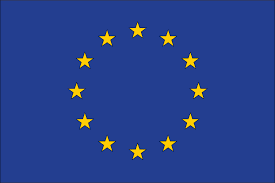Chemycal has been acquired by 3E
Learn MoreChemycal has been acquired by 3E
Learn MoreDiscover how Chemycal PRO helps you boosting your regulatory monitoring:

On Thursday, Parliament gave the final green light for an update to EU rules on limiting workers’ exposure to carcinogens, mutagens or reprotoxic substances.
An informal agreement with EU governments, reached in December 2021, was adopted by MEPs, with 686 votes in favour, 4 against and 4 abstentions. The updated EU law aims at strengthening workers’ protection against carcinogenic and other hazardous substances, by setting EU-wide occupational exposure limits.
MEPs succeeded in including reprotoxic substances within the scope of the Directive for the first time. Reprotoxic substances are harmful to reproduction and can cause impaired fertility or infertility.
Parliament’s negotiators also secured an agreement that healthcare workers who deal with hazardous medicinal products (HMPs), half of which are reprotoxic, must receive sufficient and appropriate training on how to handle them safely. The agreed text asks the Commission to develop a definition for, and establish an indicative list of, HMPs, to and prepare guidelines for handling these substances, particularly in hospitals, by the end of 2022.
An estimated 12.7 million workers in Europe, of which 7.3 million are nurses, are potentially exposed to HMPs.
Acrylonitrile, nickel compounds, benzene and crystalline silica dus
The revised rules also provide for occupational exposure limits for acrylonitrile and nickel compounds, and revise the maximum limit for benzene downwards. In addition, the Commission has to present legislative proposals on occupational exposure limit values for 25 substances or groups of substance before the end of 2022.
The EU co-legislators call on the European Commission to launch, in 2022, a procedure to reduce the occupational exposure limits for crystalline silica dust, exposure to which causes particularly serious and disabling effects such as lung cancer and silicosis.
Quotes
Rapporteur Stefania Zambelli (ID, IT) said: “This is a huge success for everyone, especially for the 13 million workers directly affected by these provisions. Besides benzene, nickel compounds and acrylonitrile, this fourth revision for the first time extends the rules to reprotoxic substances, dangerous for reproduction, and hazardous medicinal products, such as drugs mainly used in cancer treatments. This is definitely a great achievement in our common fight against cancer.”
Lucia Ďuriš Nicholsonová (Renew, SK) , who led the Parliament’s negotiating team, said "I welcome today’s vote as a huge success for the people whose health we seek to protect. The Parliament succeeded in including reprotoxic substances in the scope of the CMD directive and ensured that workers, particularly in the health sector, will be much better protected when handling hazardous medicinal products. This revised piece of legislation will prevent thousands of deaths and cases of adverse health effects every year. ”
Next steps
Pending Council’s approval, the directive will enter into force on the twentieth day after its publication in the EU Official Journal. Member states will have two year to transpose the directive after its entering into force.
Background
On 22 September 2020, the European Commission submitted the fourth legislative proposal to amend Directive 2004/37/EC on the protection of workers from the risks related to exposure to carcinogens or mutagens at work (CMD4). The proposal was announced as one of the first measures falling under the Commission’s commitment to fight cancer under Europe's Beating Cancer Plan.
CONTINUE READING ON www.europarl.europa.eu
2013 © MyChemicalMonitoring. ALL Rights Reserved. About Us | Terms and Conditions